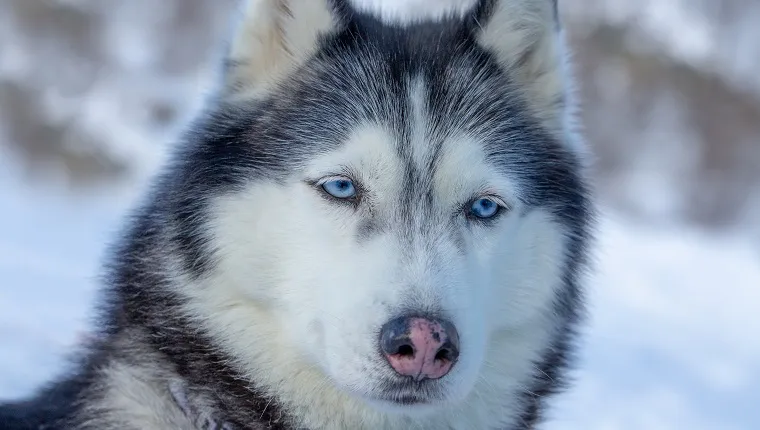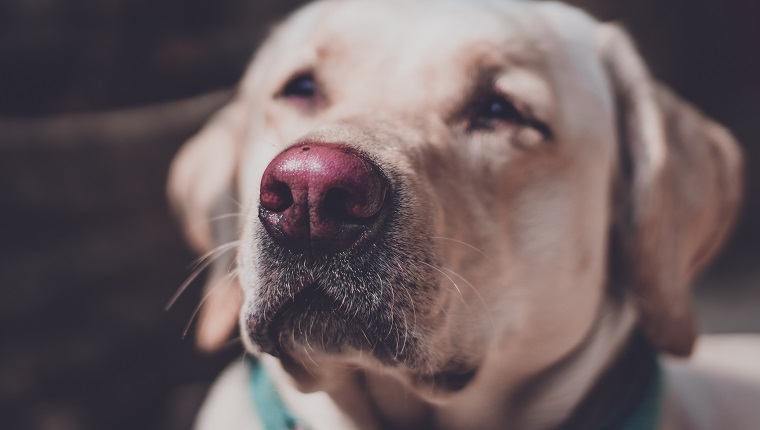Nasal pigmentation in dogs is a condition where the color, or pigmentation, of the nose changes. It often involves the nose changing to a lighter color.
In some cases, this can be a seasonal condition. The Labrador Retriever, Golden Retriever and Siberian Husky dog breeds are most prone to experiencing changes in the pigmentation of their noses. Luckily, it is often a cosmetic issue and not particularly harmful.
Still, if you see changes in the color of your dog’s nose, then you should consult your veterinarian for a proper diagnosis and course of treatment. Here’s what you should know about the symptoms, causes, and treatments of nasal pigmentation in dogs.
Symptoms Of Nasal Pigmentation In Dogs
Nasal pigmentation appears as the nose seeming to change color.
So, for example, the majority of brown Labrador Retrievers also have brown noses, but nasal pigmentation can alter the color of the nose.
Causes Of Nasal Pigmentation In Dogs

There are a number of causes of nasal pigmentation in dogs. Some of the most common causes of nasal pigmentation in dogs include the following:
- Presence of recessive genes
- The levels of tyrosinase created during certain seasons
- The aging process
In the case of tyrosinase, this enzyme produces melanin in the dog’s body and during seasons where more tyrosinase is naturally produced, a dog’s nose might turn a darker color.
Nasal pigmentation in dogs is also considered to be an idiopathic disease, which means there is no conclusively known cause of it.
Treatments For Nasal Pigmentation In Dogs
If your veterinarian suspects your dog has a case of nasal pigmentation, they’ll carry out a full physical examination. They’ll also likely order blood tests and want to take a biopsy to rule out the chances of any other underlying conditions.
Your vet might also suggest you make an appointment with a canine dermatologist.
Once the vet confirms their diagnosis, there isn’t too much they can do about the condition. Nasal pigmentation is considered a cosmetic issue; although, vets often advise using sunscreen on the dog’s nose.
Has your dog’s nose ever changed colors? Did you notice if your dog’s nasal pigmentation came on seasonally? Tell us all about it in the comments below!









